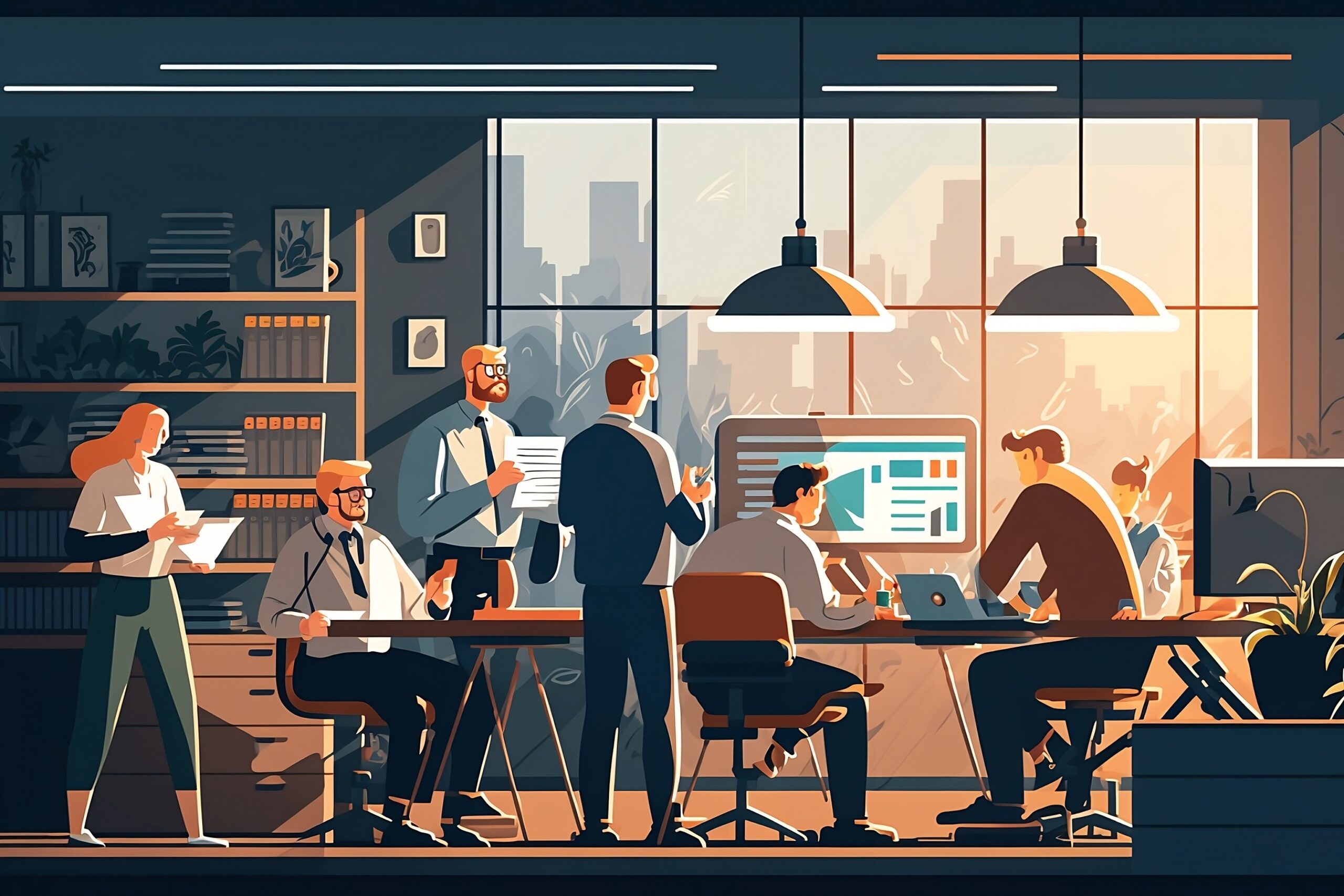

There is little doubt we live in a consumer-first world. Attention spans are short. Single-digits short. We want things now, and let’s be honest, sometimes before we’re entirely sure what it is we want at all.
Customers expect companies to be in tune with (and deliver) their wants and needs faster than ever before. And if companies aren’t responding to the call of the “One-Click Generation”, they’re likely falling behind.
One of the pain points every business leader is forced to grapple with is keeping up with customer demands and delivering the kind of customer experience that builds true brand loyalty. According to the IBM Institute for Business Value / Global C-Suite Study 19th Edition, two of the C-suite’s top five priorities are directly related to improving and reinventing their total customer experience. But because customer experience touches so many parts of a company’s business, it can be difficult to know where to begin.
The Importance of Change Management in Your CX Transformation
One of the most critical aspects of CX transformation is the fundamental change of mindset and culture needed across an entire organization to being relentlessly focused on the customer. And that shift has to be supported by the operational changes required to create an environment capable of delivering high-quality customer experiences at scale.
Undertaking a CX transformation involves:
- Clarifying your customer focus and defining your CX strategy to make room for innovation and new or enhanced business opportunities.
- Evaluating, evolving, and transforming your ways of working to enable the delivery of truly excellent experiences at scale.
- Activating and executing on your CX strategy to fuel the development and testing of new or improved products and services.
- Continuously monitoring and prioritizing your customers’ most important needs and defining the related outcomes together as an organization through a posture of active CX management.
Managing the often complex, fuzzy and ever-changing needs of your customers as their expectations evolve is challenging. Companies need perspective to consider their offerings from the customers’ points of view, and they need evolved or even new processes to unlock new ways of problem-solving, product creation and marketing.
Of course, CX Transformation doesn’t happen overnight – it’s a marathon, not a sprint. One of the most effective first steps in building momentum for a CX Transformation is through a design thinking or customer-centered workshop.
So, what is design thinking? Good question.
What Is Design Thinking or Human-Centered Design (HCD)?
Design thinking has become widely popularized as a problem-solving approach designers use to find and optimize solutions by first understanding the needs of the humans who will be interacting with them.
Design thinking workshops are a great mechanism for helping teams gain a deeper understanding of the problem, generate creative ideas, build prototypes to test and refine their solutions – and ultimately deliver a product or service that meets the needs of its intended users. And the method can be applied to a wide range of problems and industries, from product design and development to business strategy and organizational change.
HCD is a critical part of CX Transformation as it empowers organizations to logically achieve outcomes that both deliver on the customer experience strategy and that make sense operationally. Consider it an exercise in asking the right questions. It centers on the ultimate problem your company solves, and then applies that approach to every touchpoint the customer has with your company—helping your organization stay human-centered at every stage.
The Benefits of a Customer-Centered Workshop
Customer-centered workshops are incredibly beneficial for getting teams unstuck and jumpstarting (or progressing) the Customer Experience Transformation journey. Often, these workshops create “A-ha!” moments for teams and help them build momentum for solving more systemic or holistic problems instead of applying tactical solutions that don’t deliver lasting impact.
This shift in perspective lays the groundwork for one of the key components of a CX Transformation– having a customer-centric point of view. One that helps your organization connect customer interactions to business value. When you’re trying to shift your company culture even as you are focused on CX improvements, these powerful and fun workshops can be invaluable.
Here are a few of the benefits you can expect from a design-thinking workshop geared toward real CX Transformation:
Your CX Jumping Off Point
CX Transformation is a broad topic and making it a permanent mindset within your organization takes time. A workshop is a great place to start. Investing in a design-thinking or human-centered design workshop can accelerate your understanding of your customers – the foundation of CX transformation. This group setting gives you a chance to change minds and introduce your entire team to a new way of working.
A workshop provides dedicated time to focus on methods that change how you think about your customers and products. Everyone learns together and comes out on the other side with more productive, customer-centric mindsets.
Better Problem-Solving
Problem-solving requires logic, imagination, and the ability to anticipate future issues. Design-thinking workshops help cultivate the sort of problem-solving that applies to every facet of the CX process, leading to innovative solutions. When your team is encouraged to bring their ideas to the forefront (no matter how “out there“ someone might worry they are), some truly fantastic breakthroughs can happen.
Breaking Down Silos
As each team member learns to problem-solve and think user-first, you break down silos. Insight gained from one department might very well lead to an answer in another. When everyone is putting the customer first, team members are more willing to reach out, share, and join forces.
The result is a nimble organization that is better able to respond to changing market conditions and customer needs. By breaking down silos, companies can foster a culture of transparency, teamwork and continuous improvement that drives innovation, growth, and success.
Customer Retention
Excellent customer experiences require a keen understanding of what your users or customers genuinely need. The reality is that many companies overestimate how well they understand their customers. It’s easy to run on assumptions that feel good and seem right, especially when those assumptions align with operational goals. But the only true way to know what customers want and need is to talk to them.
When customers feel seen and heard, they increasingly trust you. They see you as reliable and dependable. And that’s really the focus of a good design-thinking workshop—customer-centric actions you can take that ultimately help build long-term loyalty.
Gaining Your Competitive Edge
Understanding the needs and challenges of your customers, employees, and users provides you with the appropriate insight you need to craft desirable end-to-end products, services, and experiences. A workshop can be the beginning of being better equipped to develop these solutions efficiently and define new strategies and business opportunities you haven’t considered before.
The Start of Your True CX Transformation
Consumer-first design-thinking workshops are a method for developing the tools and processes needed to know your audience and deliver solutions from their point of view. Workshops are great for accelerating your customer understanding, challenging the way you’ve always thought about problem solving especially with a big task ahead of you, and paving the way to more innovation and alignment from your team. And that will elevate you in your industry.
Questions about crafting a design-thinking workshop for your team? Reach out >